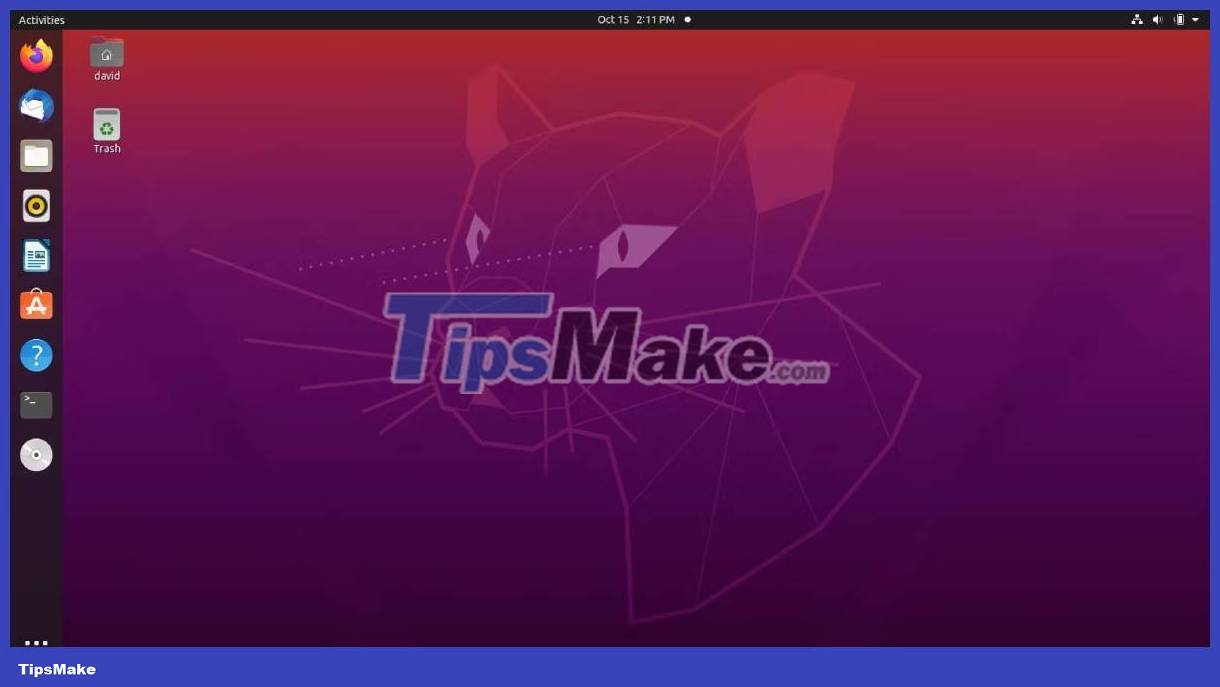9 best Debian-based Linux distributions
Debian is one of the most stable distributions, and it has spawned a number of popular forks that are great, comprehensive options for a Linux distribution. Debian is one of the longest-lived distributions for a reason, but it can be a bit difficult to reach, especially for those with little Linux experience.
Fortunately, Debian's flexibility has made it a good base for other distributions, providing a more pleasant experience for those new to Linux.
This is a list of the best Debian-based distributions that offer powerful features and a stable environment.
1. Ubuntu

By some measures, Ubuntu is the most popular Debian-based desktop Linux distribution, and for good reason. It offers a user-friendly graphical user interface and has the widest driver support.
A lot of Linux users, both novice and expert, love this operating system for the way it works. It is also widely used on servers, including those by cloud service providers like Amazon.
Ubuntu is based on Debian Unstable. Long Term Support (LTS) versions have guaranteed updates for 5 years from initial release, ensuring system stability.
Despite the popularity of Ubuntu, some decisions by Canonical have caused difficulties for the user community, such as porting major applications such as Firefox to Snap packages as well as promoting Ubuntu Pro support in APT.
2. Pop!_OS

Pop!_OS is a modified version of Ubuntu designed by System76 for their line of Linux pre-installed PCs. However, you do not need a System76 machine to use it. You can download and install Pop!_OS just like you would with any other Debian-based Linux distribution.
System76 positions this operating system as the ideal choice for creative and STEM work. Desktop has several shortcuts and gestures to make opening and switching between windows easier. You can stack windows and place them on top of each other easily.
Pop!_OS also provides a "toolkit" for data science, media production, engineering, and bioinformatics, including popular software tools such as Blender, R and Jupyter, among others.
The distro offers special features for System76 owners. You can download firmware updates for your machine using a special tool provided only to System76 users.
3. Q4OS

When you think of a desktop Linux distribution based on Debian, you probably think of Ubuntu. Q4OS is intended to be a more compact, ergonomic desktop and a suitable alternative to Ubuntu.
While Ubuntu is based on Debian Unstable, Q4OS is based on the stable version. The default desktop is KDE Plasma, but developers provide the option to switch desktops, including the Trinity desktop, using the distro's "lookswitcher" tool. It is even possible to run Plasma and Trinity side by side in Q4OS.
4. SparkyLinux

SparkyLinux is another way to create a "minimalist" desktop distribution. Like Q4OS, SparkyLinux aims for a lightweight desktop experience through the LXQt environment by default, although images are also available with Xfce and KDE. It is based on Debian, not Ubuntu.
You can also install other custom desktop variants: GameOver for gaming, Multimedia for audio, video and web development, Rescue for fixing unbootable systems. The MinimalCLI version is also available without an X server.
5. Zorin OS

Zorin OS is a Linux distribution based on Debian through Ubuntu that strives to provide an interface that is familiar to Windows users. The idea is to make it easier for people who are used to Windows and macOS to switch to Linux.
Many people also prefer to install Linux on older computers, and Zorin OS offers a "Lite" version specifically for that purpose. Zorin OS also has a paid "Pro" version that includes screen layouts, additional apps, and a note-taking app.
6. Devuan

Devuan is a fork of Debian, the result of Debian making the switch in its init system, from the old Unix System V-inspired system to systemd, a move controversial in the Linux community for various reasons.
Several Debian developers left the project and started Devuan to promote what they called "original freedom", releasing a variant of Debian that did not use systemd. By default, Devuan uses the sysvinit system but you may have other options.
7. Kali Linux

Many businesses run Linux on their servers because it's secure, but security is a very difficult thing to be sure of. That is why many organizations use penetration testers to try to break into their systems. If you want to learn how to do this, Kali Linux is the distro for you.
Kali Linux comes with hundreds of penetration testing tools like Nmap. It provides you complete set of penetration testing tools on a friendly Linux desktop. Documentation is also extensive, with "recipes" showing how to do something with the operating system.
8. MX Linux

MX Linux bills itself as a "mid-tier" Linux distribution that tries to be the middle ground between minimalist distros and big ones like Ubuntu. By default, it uses the Xfce desktop, with additional KDE Plasma and Fluxbox options.
This distro is the successor of the original MEPIS distribution as well as antiX. The developers of this distro wanted to make it run well on both old and new machines.
9. Deepin

Deepin describes itself as "the top Linux distribution from China", targeting a global audience. The distribution has its own desktop, the Deepin Desktop Environment, along with its own set of applications, including a package installer. The interface is attractive, while the underlying system is based on Debian.